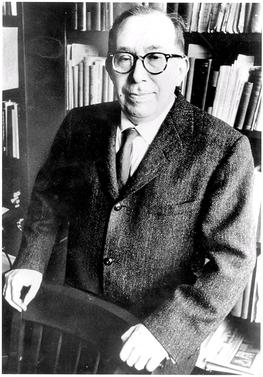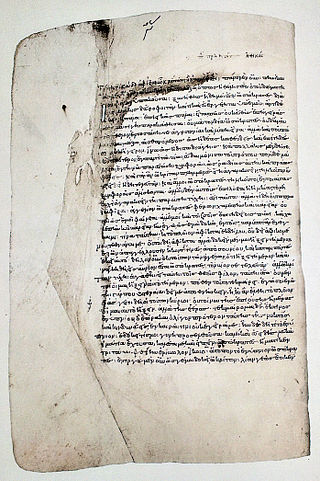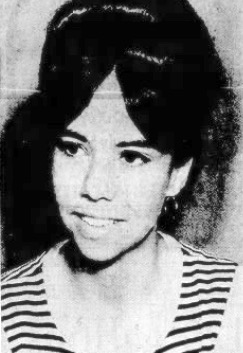The Trial of Socrates was held to determine the philosopher's guilt of two charges: asebeia (impiety) against the pantheon of Athens, and corruption of the youth of the city-state; the accusers cited two impious acts by Socrates: "failing to acknowledge the gods that the city acknowledges" and "introducing new deities".
Ancient Greek philosophy arose in the 6th century BC. Philosophy was used to make sense of the world using reason. It dealt with a wide variety of subjects, including astronomy, epistemology, mathematics, political philosophy, ethics, metaphysics, ontology, logic, biology, rhetoric and aesthetics. Greek philosophy continued throughout the Hellenistic period and later evolved into Roman philosophy.

Leo Strauss was a 20th century German-American scholar of political philosophy who specialized in classical political philosophy. Born in Germany to Jewish parents, Strauss later emigrated from Germany to the United States. He spent much of his career as a professor of political science at the University of Chicago, where he taught several generations of students and published fifteen books.

Crito is a dialogue that was written by the ancient Greek philosopher Plato. It depicts a conversation between Socrates and his wealthy friend Crito of Alopece regarding justice (δικαιοσύνη), injustice (ἀδικία), and the appropriate response to injustice after Socrates's imprisonment, which is chronicled in the Apology.
The Apology of Socrates, written by Plato, is a Socratic dialogue of the speech of legal self-defence which Socrates spoke at his trial for impiety and corruption in 399 BC.

In historical scholarship, the Socratic problem concerns attempts at reconstructing a historical and philosophical image of Socrates based on the variable, and sometimes contradictory, nature of the existing sources on his life. Scholars rely upon extant sources, such as those of contemporaries like Aristophanes or disciples of Socrates like Plato and Xenophon, for knowing anything about Socrates. However, these sources contain contradictory details of his life, words, and beliefs when taken together. This complicates the attempts at reconstructing the beliefs and philosophical views held by the historical Socrates. It has become apparent to scholarship that this problem is seemingly impossible to clarify and thus perhaps now classified as unsolvable. Early proposed solutions to the matter still pose significant problems today.
Harry Victor Jaffa was an American political philosopher, historian, columnist, and professor. He was a professor emeritus at Claremont McKenna College, Claremont Graduate University, and was a distinguished fellow of the Claremont Institute. Robert P. Kraynak says his "life work was to develop an American application of Leo Strauss's revival of natural-right philosophy against the relativism and nihilism of our times".
Phædo or Phaedo, also known to ancient readers as On The Soul, is one of the best-known dialogues of Plato's middle period, along with the Republic and the Symposium. The philosophical subject of the dialogue is the immortality of the soul. It is set in the last hours prior to the death of Socrates, and is Plato's fourth and last dialogue to detail the philosopher's final days, following Euthyphro, Apology, and Crito.

Republic is a Socratic dialogue, authored by Plato around 375 BC, concerning justice, the order and character of the just city-state, and the just man. It is Plato's best-known work, and one of the world's most influential works of philosophy and political theory, both intellectually and historically.
Memorabilia is a collection of Socratic dialogues by Xenophon, a student of Socrates. The lengthiest and most famous of Xenophon's Socratic writings, the Memorabilia is essentially an apologia (defense) of Socrates, differing from both Xenophon's Apology of Socrates to the Jury and Plato's Apology mainly in that the Apologies present Socrates as defending himself before the jury, whereas the former presents Xenophon's own defense of Socrates, offering edifying examples of Socrates' conversations and activities along with occasional commentary from Xenophon. Memorabilia was particularly influential in Cynic and later Stoic philosophy.

Larry Paul Arnn is an American educator and writer. He has served as the twelfth president of private Hillsdale College in Hillsdale, Michigan, since May 2000. He is a political conservative who has been influenced by the thought of Leo Strauss and Strauss's student and Arnn's teacher Harry V. Jaffa.
The Clitophon is a 4th-century BC dialogue traditionally ascribed to Plato, though the work's authenticity is debated. It is the shortest dialogue in Plato's traditional corpus. It centers on a discussion between Clitophon and Socrates, with Socrates remaining mostly silent. Most scholarship until recently has been concerned with the authenticity rather than the actual meaning and contents of Clitophon.
T. K. Seung was a Korean-American philosopher and literary critic. His academic interests cut across diverse philosophical and literary subjects, including ethics, political philosophy, Continental philosophy, cultural hermeneutics, and literary criticism.
James Vincent Schall was an American Jesuit Roman Catholic priest, teacher, writer, and philosopher. He was Professor of Political Philosophy in the Department of Government at Georgetown University. He retired from teaching in December 2012, giving his final lecture on December 7, 2012, at Georgetown; it was entitled "The Final Gladness," and was sponsored by the Tocqueville Forum. has been described as "a reflection on different aspects of lifelong learning" by the National Catholic Register.
Bradley C. S. Watson is a Canadian-born American political science educator, lawyer, and writer, and a member of the "West Coast Straussian" school of political thought.
Roland Faber is an author and Kilsby Family/John B. Cobb, Jr., Professor of Process Studies at Claremont School of Theology and Professor of Religion and Philosophy at Claremont Graduate University. He is Executive Co-Director of the Center for Process Studies, Executive Director of the Whitehead Research Project in Claremont, California, and Editor of the Contemporary Whitehead Studies series. Faber received a PhD in systematic theology from the University of Vienna in 1992. In 1998, he was appointed assistant professor at the Institute for Dogmatic Theology in Vienna, Austria. In 2005, he received a joint appointment as professor of process theology at Claremont School of Theology and professor of religion at Claremont Graduate University.

Victorino Tejera was a writer, scholar, and professor of philosophy with specializations in ancient Greek thought, Metaphysics, Aesthetics, and American philosophy. He was born in Caracas, Venezuela. He is known especially for his writing on Plato's Dialogues. Many scholars believe Tejera's work in this area is his most valuable contribution to philosophy. He was editor and contributor with Thelma Lavine on History and Anti-History in Philosophy whose FromSocrates to Sartre (1984) was the basis for the PBS series of the same name.
Ronald J. Pestritto is an American academic. He is the Graduate Dean and Professor of Politics at Hillsdale College, and the author of two books and the editor of five more.

Grace Starry West was an American classics scholar, best known as co-translator of a popular English edition of four texts on Socrates. She taught at the University of Dallas in Texas, and at Hillsdale College in Michigan.
Christopher Wolfe is an American political scientist and Distinguished Research Scholar and former Affiliate Professor of Politics at the University of Dallas. He is also Emeritus Professor at Marquette University. Wolfe is known for his works on American judicial review and natural law public philosophy.






